Annual Fall Walk Highlighted Native Plants
On October 21, 2024, fall’s phenomena lured 20 nature lovers to the Dyke Marsh Wildlife Preserve on a walk led by Alan Ford and Margaret Chatham with the Potowmack Chapter of the Virginia Native Plant Society.
Billed as a “fall colors walk,” Chatham commented that Northern Virginia is suffering from a very dry summer and fall which has affected plants in many ways. Plants like sumacs (Rhus glabra) had very few fruits or berries compared to wetter years, she pointed out.
The Friends of Dyke Marsh (FODM) and the Potowmack Chapter of the Virginia Native Plant Society (VNPS) cosponsored the walk.
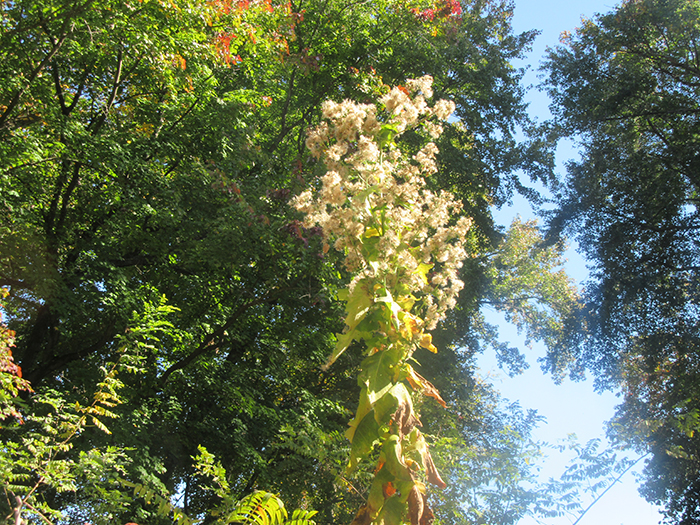 |
| The drying flowers of ten-foot blue lettuce (Lactuca perennis) plants were fluffy, dispersing seeds via the wind. All photos by Glenda Booth unless otherwise noted. |
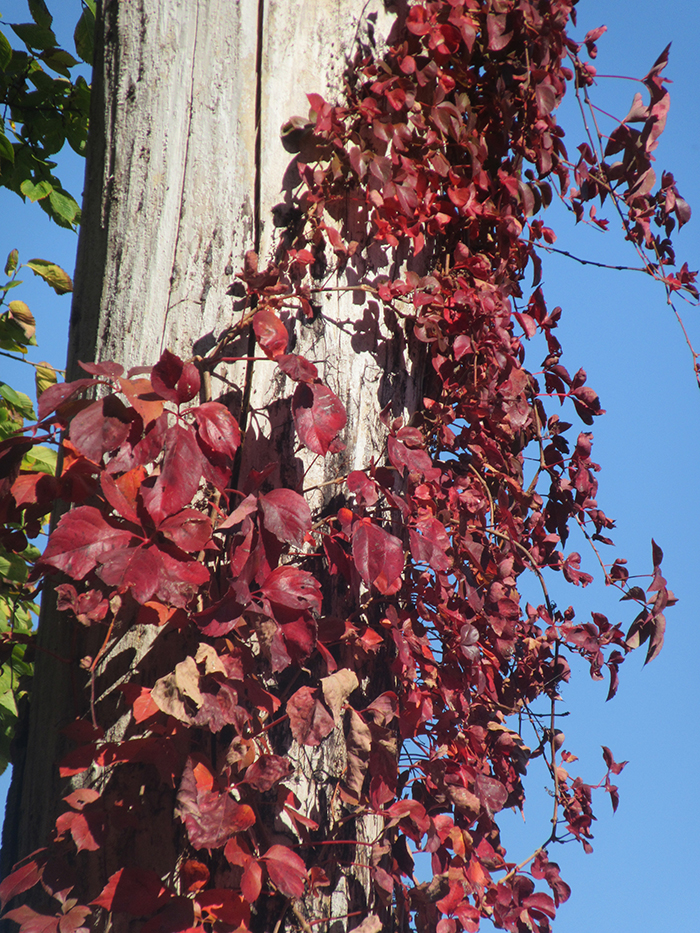 |
| Virginia creeper (Parthenocissus quinquefolia) vines climbing up trees “put on a show,” Chatham said, displaying their bright red hues in the sun. Unlike English ivy vines, Virginia creeper vines do not kill trees, she stressed. |
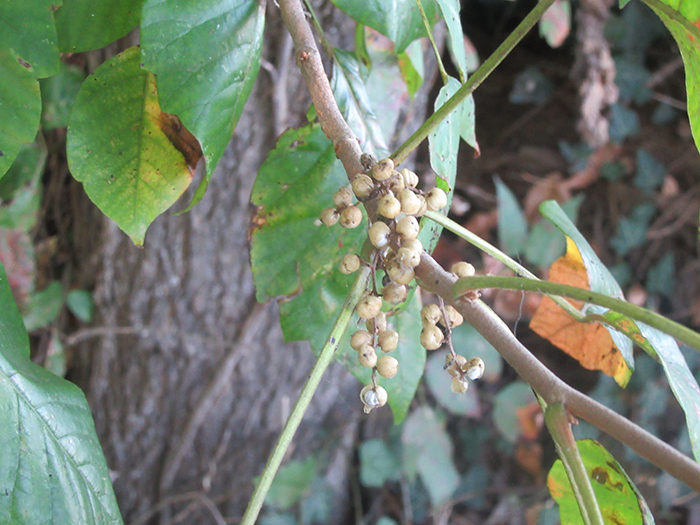 |
| Poison ivy vines (Toxicodendron radicals) were turning orangey-red. Poison ivy is a native plant here, but someone took it to England so there it is invasive, Chatham remarked. Birds eat the berries in winter, when most berries of other plants are gone. |
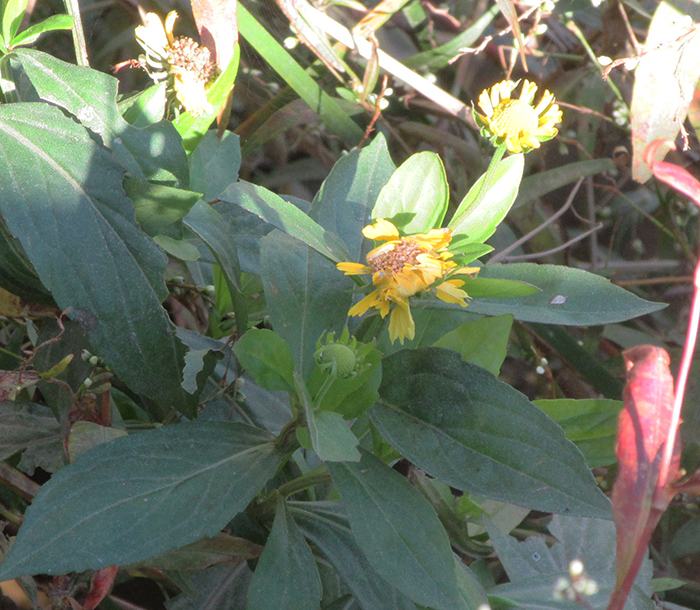 |
| One spot of color was sneezeweed (Helenium autumnale), sporting yellow blossoms. The plant’s leaves were once used for snuff and stuffed up nostrils, hence the name. |
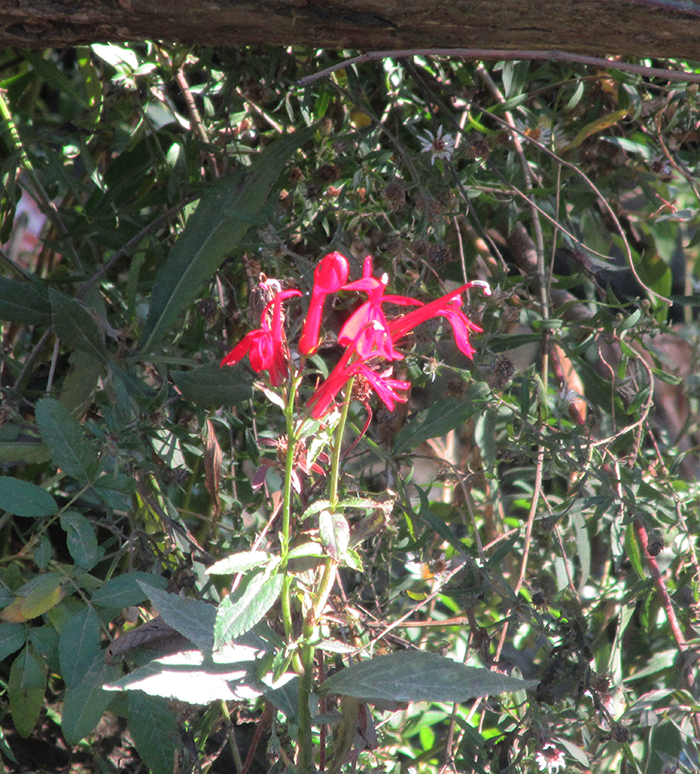 |
| A few bright red cardinal flowers (Lobelia cardinalis) were in bloom along the shoreline. |
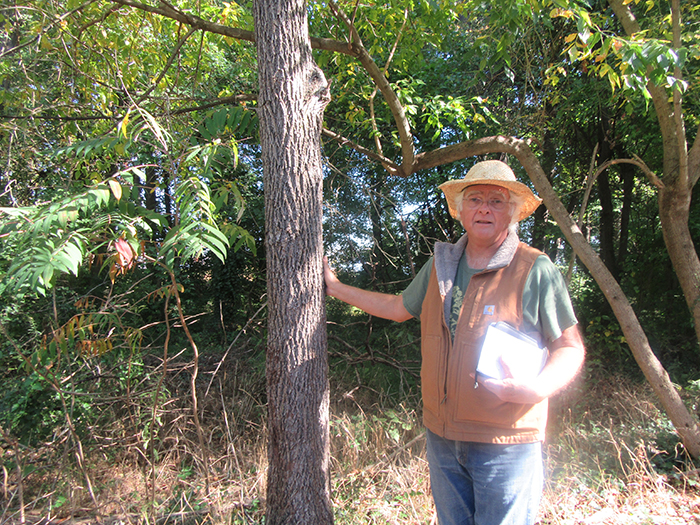 |
| Alan Ford is President of the Potowmack Chapter of the Virginia Native Plant Society, here describing an American black walnut tree (Juglans nigra) and its allelopathic qualities. This tree can disrupt or stunt the growth of other plants near it. |
 |
| Margaret Chatham pointed out bladdernut plants (Staphylea trifolia) and their capsule-like fruits that can float in water. |
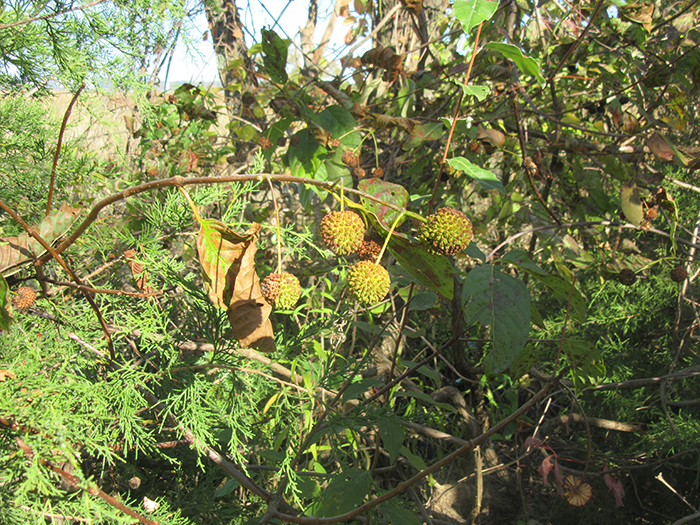 |
| Buttonbush plants (Cephanthalus occidentalist) have ball-like flowers. |
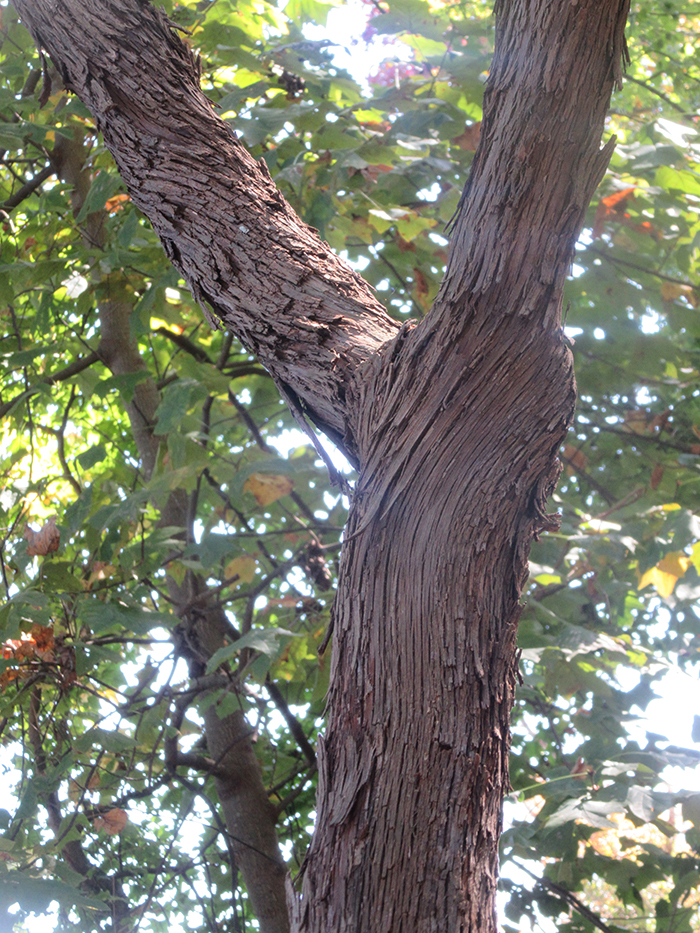 |
| The group admired a robust native grape vine (Vitas sp). |
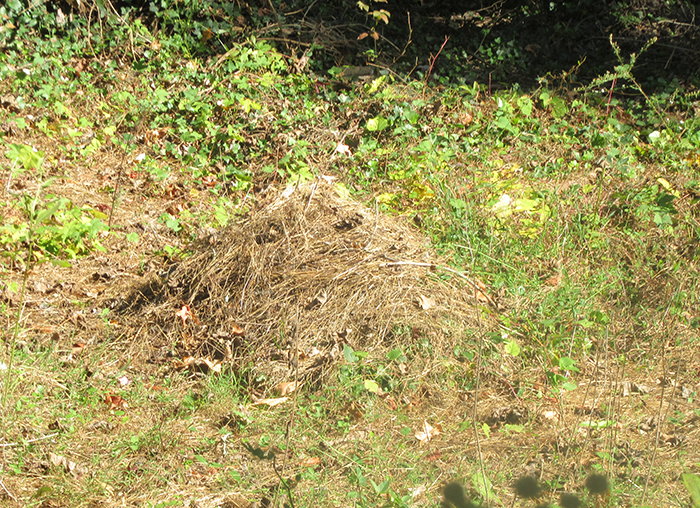 |
| The group applauded piles of dead, invasive stiltgrass (Microstegium vimineum) that FODM volunteers have removed this year. |
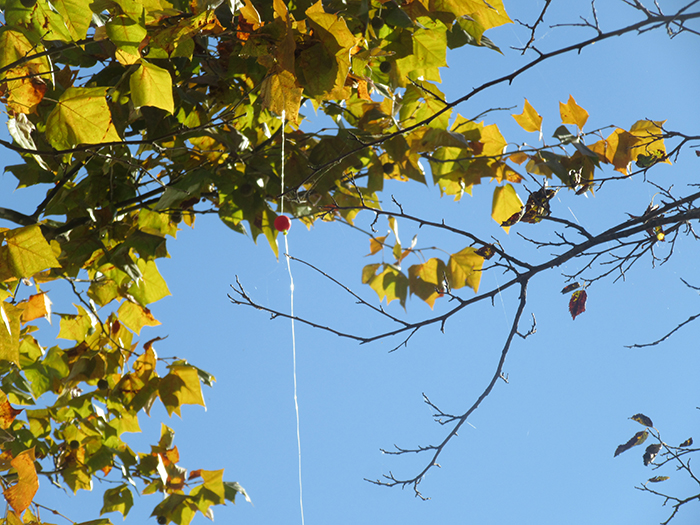 |
| One sad note was fishing line snagged and hanging from a tree, a peril for birds. Birds can get tangled up in it. |
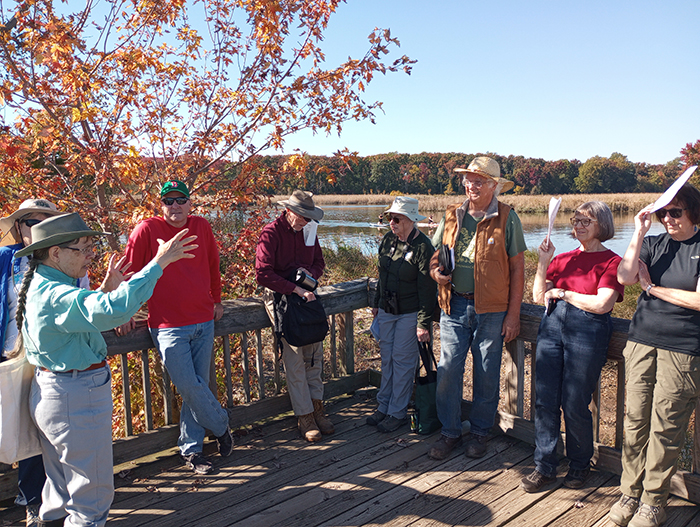 |
| The walk attracted 20 people. Photo by Clarence Monteiro |

 Friends of Dyke Marsh, Inc. is a non-profit 501(c)(3) organization.
Friends of Dyke Marsh, Inc. is a non-profit 501(c)(3) organization.